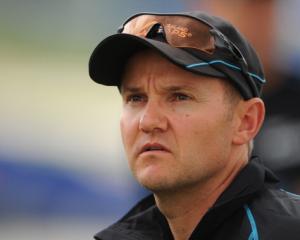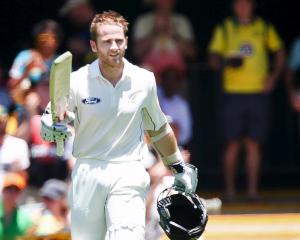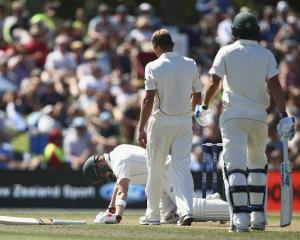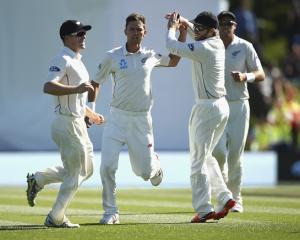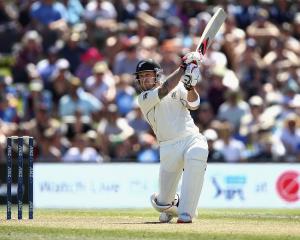It is fair to say that recent times have been difficult for the Black Caps and their supporters, and for New Zealand Cricket.
Therefore, this is not the time to scrutinise the work of any players, administrators, coaches or selectors.
However, it is a good time to look at the problems facing cricket in this country at international level and consider some solutions for a better future for the Black Caps.
Ideally, to have a national cricket team of true international standard, the country has to have 11 cricketers of true international class.
These are the cricketers who have specific roles to play in the team and have the skill to perform against all teams, under all conditions, in all countries, and at all times.
Such a team is not always possible to produce, but it is what one should be aiming to achieve; and with such an aim, one starts stifling the culture of mediocrity.
This in itself is a first step towards higher standards.
But in New Zealand one has to face facts, and the first thing to realise is that in this country, cricket is played in an environment that is not conducive to the development of top-class cricketers on a regular basis.
With a small population, rugby's stranglehold on the minds of people, a lifestyle of leisure and pleasure, and a long holiday period in the middle of the cricket season, the country is always going to struggle to produce high-calibre cricketers in sets.
So, it can have all the coaches, all the high performance centres, all the CEOs, all the facilities, and all of everything - but New Zealand international cricket teams are still not going to be among the world's best.
Of course, New Zealand would have world-class cricketers emerging periodically; they would make their mark on international arenas, they would win matches/series, even carry the teams.
But once they are gone, it is back to appointing new coaches and selectors and replacing them; back to looking for fresh opening batsmen, slow bowlers who can spin the ball and win test matches, or fast and swing bowlers of this speed or that swing.
Players are selected and then dropped; players are experimented with and then discarded.
This is New Zealand a breeze away from international cricket maelstrom.
In spite of all the drawbacks, I believe New Zealand is still capable of producing cricketers capable of giving the national team a front seat at international level.
But it would have to be based on the philosophy of, in equities phrase, growth investment.
There are no quick winners here.
In cricketing terms, one has to go out and find the types of cricketers needed and start coaching them towards stardom, and the rest would fall into place.
But waiting for cricketers to emerge in a knot of match-winners off their own bat is like expecting big dividends from dog stocks.
The cricketers I am talking about are, at this very moment, living along the length and across the breadth of this country, in cities, in townships, in lakeside settlements, and on the farms.
But, as things stand, no-one in New Zealand knows who and where they are.
In ages, they fall somewhere between 9 to 11 years, and may not be playing cricket.
Their parents are unaware that they have a little boy who may have the potential of not only becoming an international great but one of the greats of the game.
This is a reality in every cricket-playing country, and New Zealand is no exception.
There is another group of young cricketers in the 12 to 16 age bracket.
They are already playing cricket; and if one were familiar with the handiwork of cricket gods, one would recognise their awe-inspiring potential.
Take note, though, some of them would end up playing club cricket; many of them, for various reasons but mainly through lack of ambition or incompetence of others, as well as due to the jack-of-all-trades-and-master-of-none mentality, would disappear without a trace as cricketers.
As would those who take time to reveal their talents - they are the victims of the mechanics of age group selections.
Incidentally, in such a cricket set-up, boys become men playing juvenile cricket, resulting in incalculable damage to the cricket development of teenagers.
In a country with a small pool of first-class cricketers, approach to international success is best based on pragmatic principles rather than on idealistic ideas.
In cricket, success is mostly gained by adhering to cricketing logic; there are no shortcuts.
Therefore, it pays to be prudent and realistic about the skill levels of a country's first-class cricketers.
In this regard, the rule should be to respect and value the experienced and skilled ones and hang on to them as long as possible - for it is easier to coach and train an experienced cricketer to perform according to the chosen strategy than to bring in a new player to do the job.



